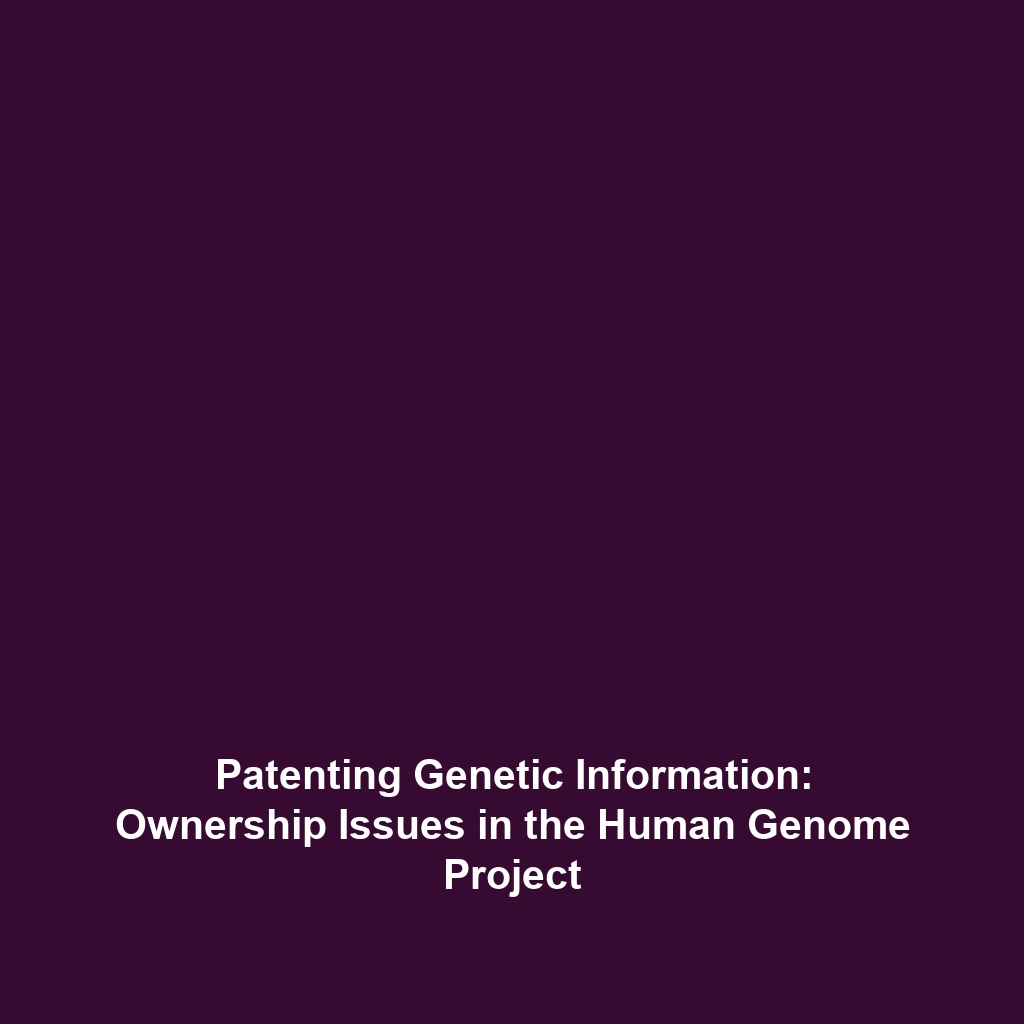Patenting and Ownership of Genetic Information
Introduction
The patenting and ownership of genetic information has emerged as a pivotal subject following the completion of the Human Genome Project. This monumental scientific endeavor aimed at mapping the human genome has raised profound ethical, legal, and economic questions regarding who owns genetic information and how it can be utilized. As we transition into an era where genetic data plays an essential role in medicine and biotechnology, understanding the implications of patenting becomes increasingly crucial. This article explores key concepts, real-world applications, challenges, and future innovations related to this pressing topic.
Key Concepts
Understanding Genetic Patenting
Genetic patenting refers to the legal claim over specific genetic sequences and the associated rights to their use. These concepts are grounded in intellectual property law, which seeks to incentivize innovation while protecting the rights of inventors.
Ownership of Genetic Information
The ownership of genetic information encompasses ethical considerations, privacy rights, and the potential for profit from genetic resources. The Human Genome Project revealed the vast array of genetic information, prompting discussions around who can claim ownership over these sequences and the related implications for individuals and society.
Applications and Real-World Uses
Understanding how patenting and ownership of genetic information are applied in the context of the Human Genome Project is essential for grasping their impact on modern science. Key applications include:
- Biotechnology Development: Companies can patent genetically modified organisms (GMOs) that are developed using insights from the Human Genome Project.
- Pharmaceuticals: Patents on genetic information are used to protect new drug discoveries based on specific genetic markers.
- Personalized Medicine: Insights from the Human Genome Project allow for customized approaches to treating diseases based on an individual’s genetic makeup, powered by patented technologies.
Current Challenges
The field of patenting and ownership of genetic information faces several challenges and limitations:
- Legal Ambiguity: The scope of what can be patented remains contentious, leading to differing interpretations globally.
- Ethical Issues: The concept of owning genetic material raises moral dilemmas regarding consent and exploitation.
- Accessibility: Patenting can create barriers to access for individuals needing medical treatments grounded in genetic research.
Future Research and Innovations
Looking ahead, innovations in patenting and ownership of genetic information are expected to transform the landscape of genomics:
- Next-Generation Sequencing: Advances in this technology could challenge existing patent frameworks, necessitating new regulations.
- Gene Editing Technologies: As CRISPR and other methods expand, understanding their patentability will be crucial.
- Data Sharing Practices: Future research may focus on collaborative frameworks that prioritize open access and ethical use of genetic information.
Conclusion
In summary, the patenting and ownership of genetic information are integral to the implications of the Human Genome Project. As genetic information continues to influence various sectors, comprehending these aspects will be key to ensuring ethical and equitable use. For further exploration on genetic research implications, visit our sections on ethical considerations and biotechnology advancements.

Leave a Reply